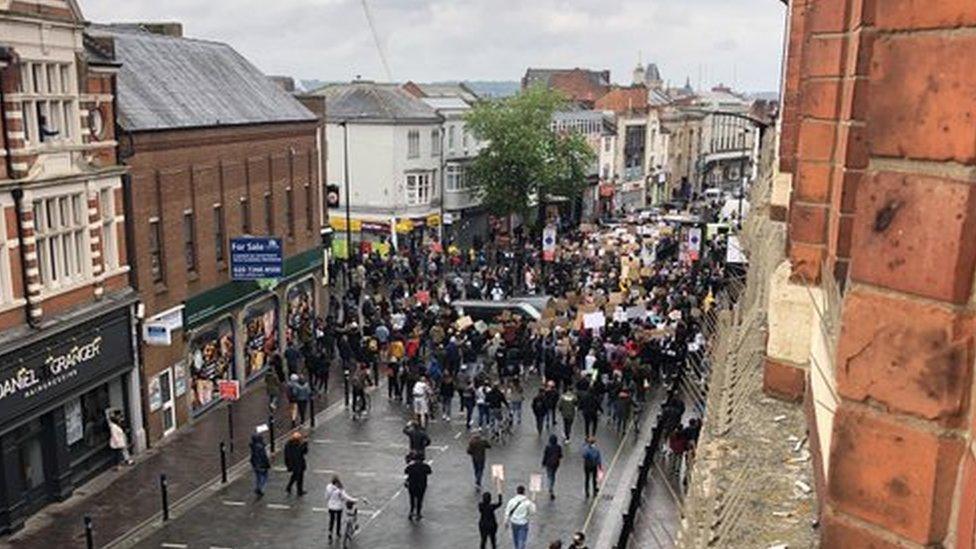Black Lives Matter: 'I told my sister if it hurts we can talk about it'
- Published
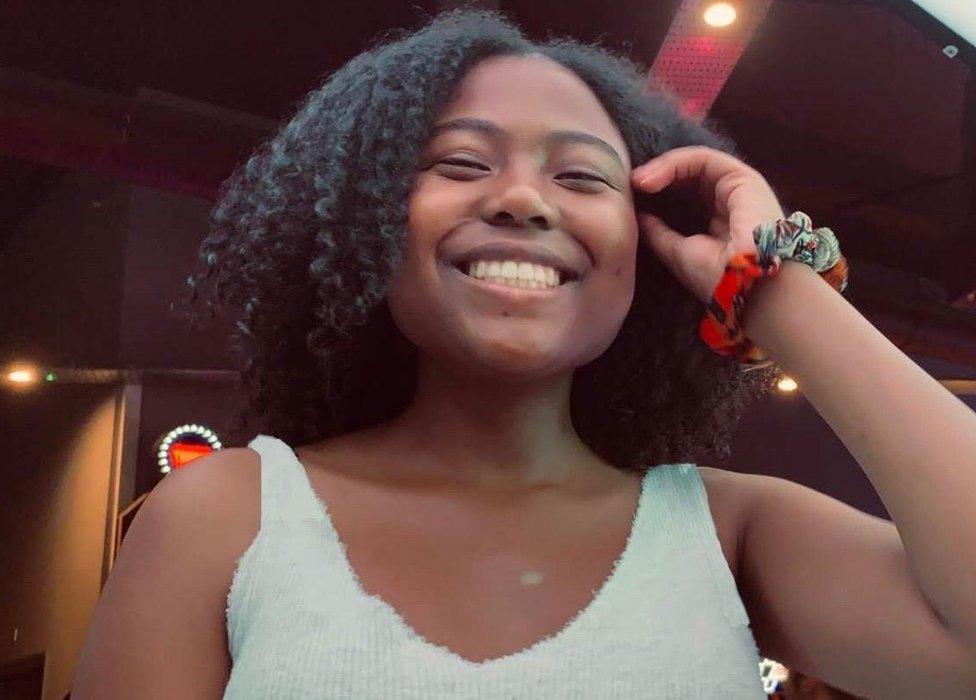
Luton Black Lives Matter campaigner Nevada Claxton said it had been a "tough" year
Black Lives Matter protests have gone international this year. Three local organisers in the UK, galvanised by the death of George Floyd in the US and their own experiences of racism, have spoken about the impact of the demonstrations on their own lives and what they plan to do next.
Nevada Claxton, 18, said the coronavirus lockdown had given her pause for "serious reflection" on what had happened to Mr Floyd in Minneapolis in May, with its ripples felt thousands of miles away in her family home in Luton, Bedfordshire.
"All of a sudden you had to fight it. My friends and I just thought of all the things over the years we'd let slide that were racist," said Ms Claxton.
"For my sister - who was 12 and at that age where they're on social media like TikTok and Snapchat - that footage was hard to avoid.
"We sat down together, but we couldn't speak about it.
"So I said to her 'if it hurts we can talk about it and she burst into tears'.
"What happened to George Floyd has been devastating, but I just hope she doesn't have to be on the phone to her friends when she's 18 saying 'Let's protest [against] this'."
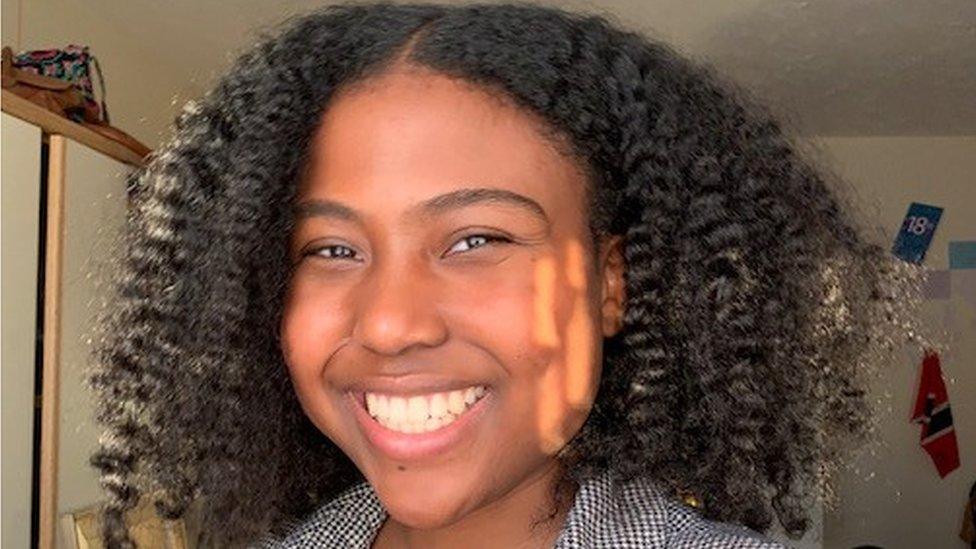
Nevada Claxton is producing podcasts where she talks about topical issues affecting people her age
Ms Claxton and a group of 10 friends organised a Black Lives Matter protest in Luton this summer and were overwhelmed when 600 people turned out.
She deferred taking up her place to study journalism at university due to Covid-19 and said she had instead has been devoting her time to fighting prejudice.
After the march, her group was invited to work with Luton Council and, with two friends, she has been appearing on Danny Fullbrook's BBC Three Counties show to talk about a range of topical issues, which had been "amazing".
Nevada - who was brought up in Sheffield, New York and Trinidad before moving back to the UK when she was 12 - said while there were loose plans for a demonstration in 2021, she was hoping to help start pop-up events to tackle prejudice.
"We'd love to do shows as a lot of our friends are creative - singers and dancers," she said.
"Once the pandemic is over we'll be able to do more physical stuff."
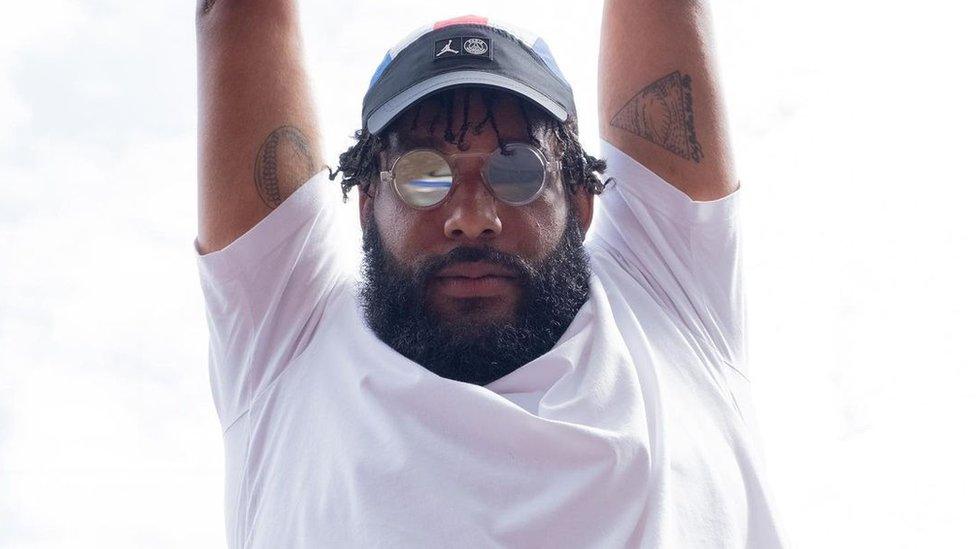
Will Reid said the thought of having to warn his daughter she'll suffer racism spurred him to add his voice to the Black Lives Matter social movement
Ms Claxton's desire to tackle racism is echoed by Northampton-based model and poet Will Reid, who has a five-year-old daughter.
The son of a Jamaican/West African father and English/German mother, Reid noticed by the time he was 16 that his group of friends had become predominately black.
"How can I be having the same conversations with my daughter - who is mixed race - that my dad had to have with me?" said Reid.
"How can I tell her that certain people won't like her because of the colour of her skin? That friends will no longer come round because their parents don't like the colour of her skin?"
The 31-year-old said while George Floyd's death had "started a conversation" about racism and raised awareness, progress would remain slow.
"It's burst a lot of people's bubbles - especially for the older generation who thought there wasn't any racism here," he said.
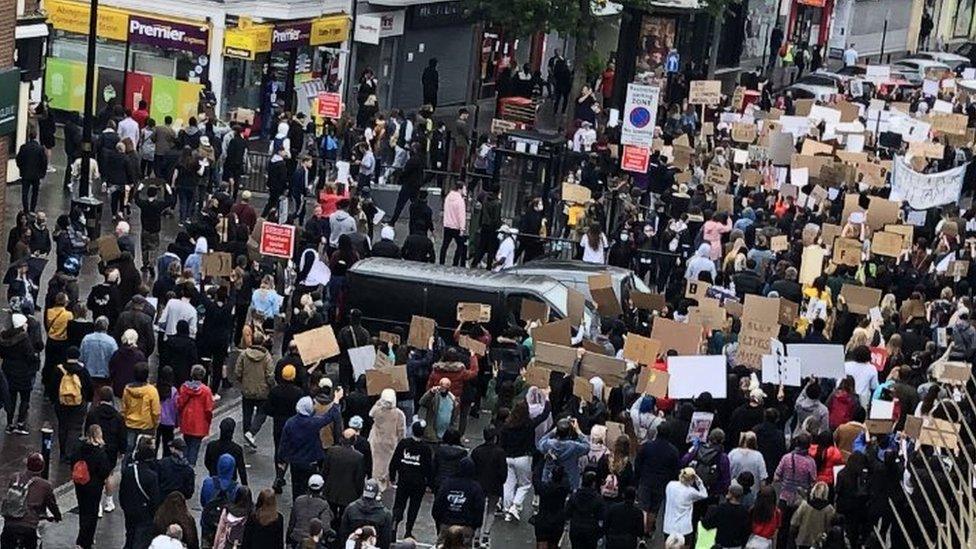
Will attended Northampton's first Black Lives Matter demonstration in June
Reid said curiosity prompted him to attend the first Black Lives Matter demonstration in Northampton in June, where he ended up delivering an off-the-cuff speech.
Spurred on by the response, it led to him helping to organise the next protest and talking to Anjona Roy and Paul Crofts at the Northamptonshire Rights and Equality Council, external about how it could connect more effectively with younger black and mixed race people.
Reid was voted onto the board, chaired a meeting with Northamptonshire Police about stop and search measures and the use of force.
He plans to hold seminars where youngsters can talk to officers about such issues to "build relationships".
Reid was also in the process of setting up a charity named after his grandfathers to give grants to help local children with their education and other opportunities.
He said education was the key in breaking down barriers at a grassroots level to help promote more understanding about equality and black history.
"When I was in year 10 or 11, I asked about all the black children in World War Two and was told there weren't any," Reid said.
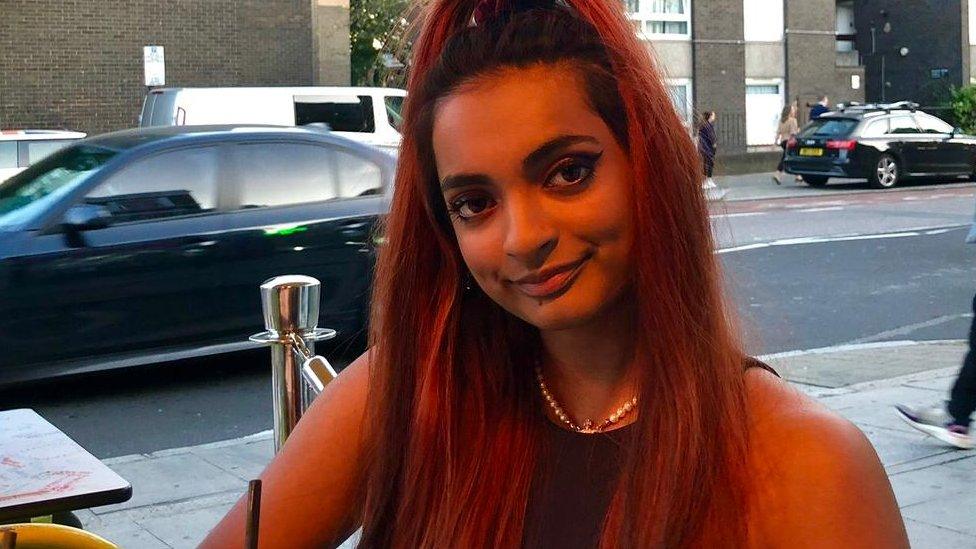
Malaika Gangooly has been busy helping compile and distribute information packs to 50 schools across the UK to help children learn about black history
It is an issue that journalism student and campaigner Malaika Gangooly - who helped organise Chelmsford's Black Lives Matter protest - has been trying to tackle.
Ms Gangooly and two friends have distributed resource packs on black history and issues to 50 schools across the country.
The 20-year-old, recently appointed as the equality and diversity representative at her university, City of London, said the project gained traction on Twitter as more and more teachers began contacting her.
"I think they're just happy that someone is doing it," she said.
"It is really rewarding and so much effort goes into those resources to make sure kids get taught about people [who] we didn't [get taught about].
"It's nice to know there seems to be generational change."
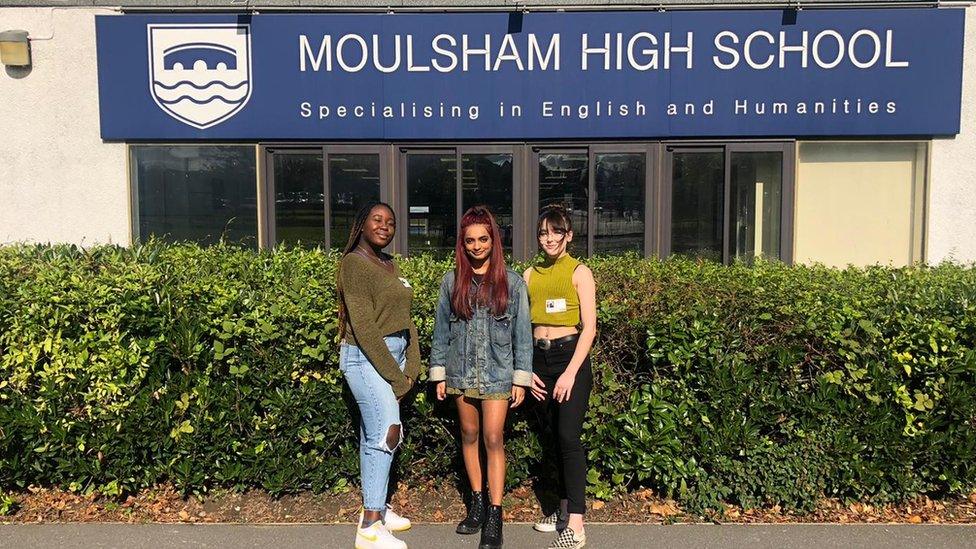
Malaika Gangooly with friends Shope Fashade (left) and Molly Foskett (right) outside her former school in Chelmsford where they gave an assembly
She has also given two school assemblies and plans to do more, bolstered by invitations to speak about her activism at a recent Amnesty International conference and academic forum, where she joined a panel of professors.
As the youngest speaker at both, Ms Gangooly said she had used the opportunities to "learn from those who know more than me", and felt the fight for racial equality was now down to "100% our generation and the generation coming".
She said: "I want there to be one moment where I think 'wow, things have really changed for the better'."

Find BBC News: East of England on Facebook, external, Instagram, external and Twitter, external. If you have a story suggestion email eastofenglandnews@bbc.co.uk, external
Related topics
- Published30 November 2020
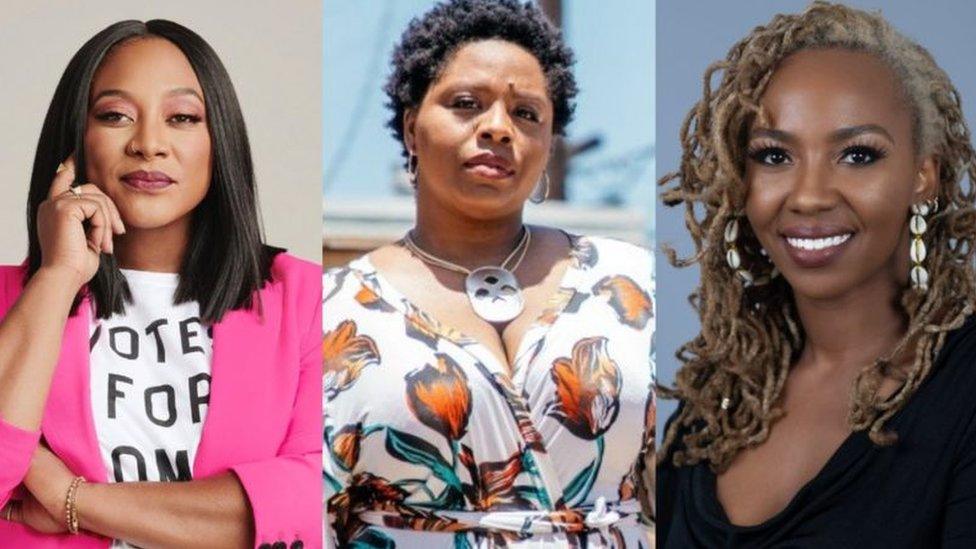
- Published21 October 2020
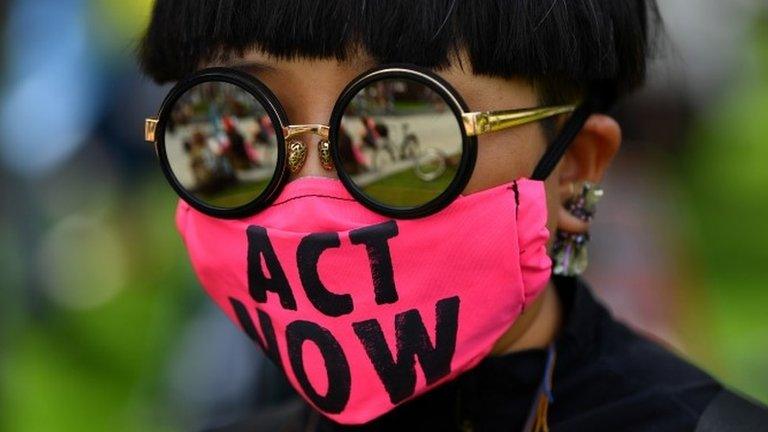
- Published25 July 2020
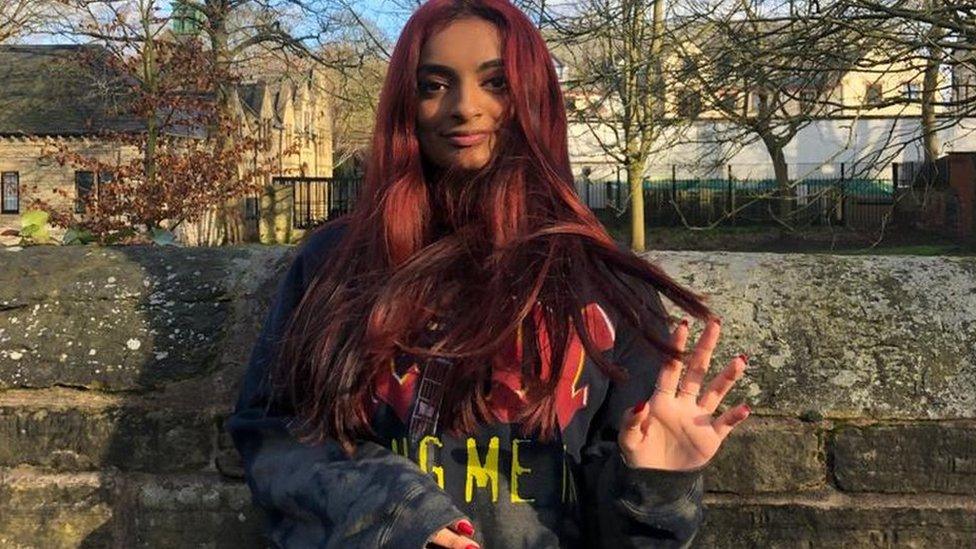
- Published13 June 2020
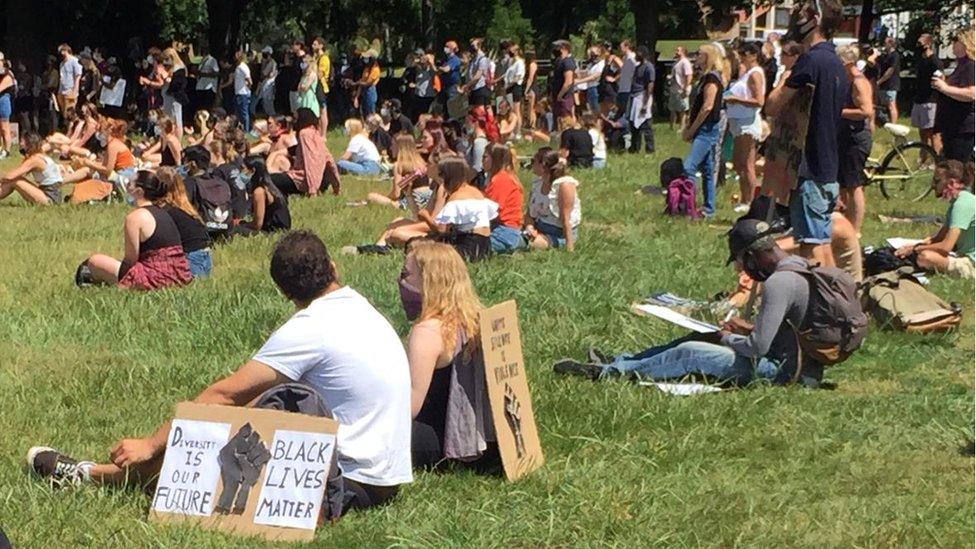
- Published9 June 2020
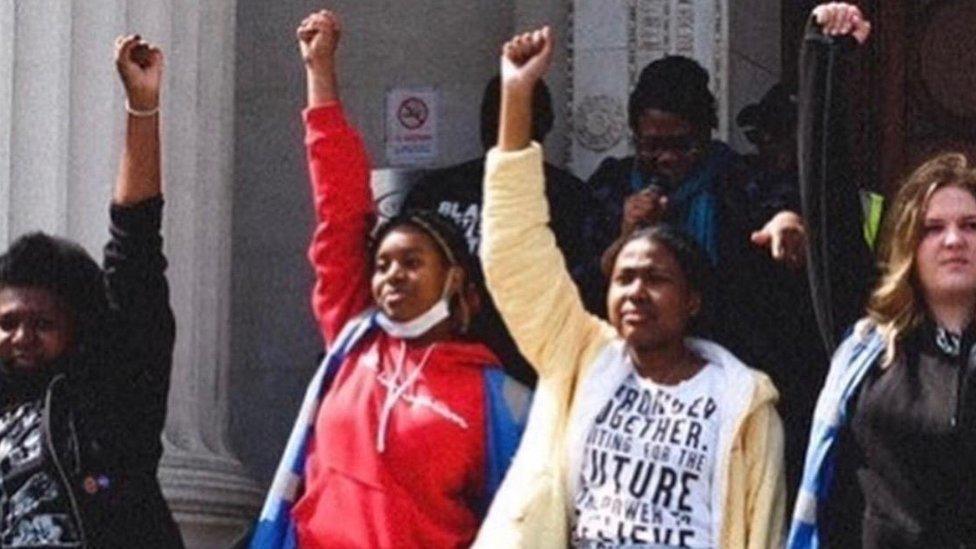
- Published4 June 2020
